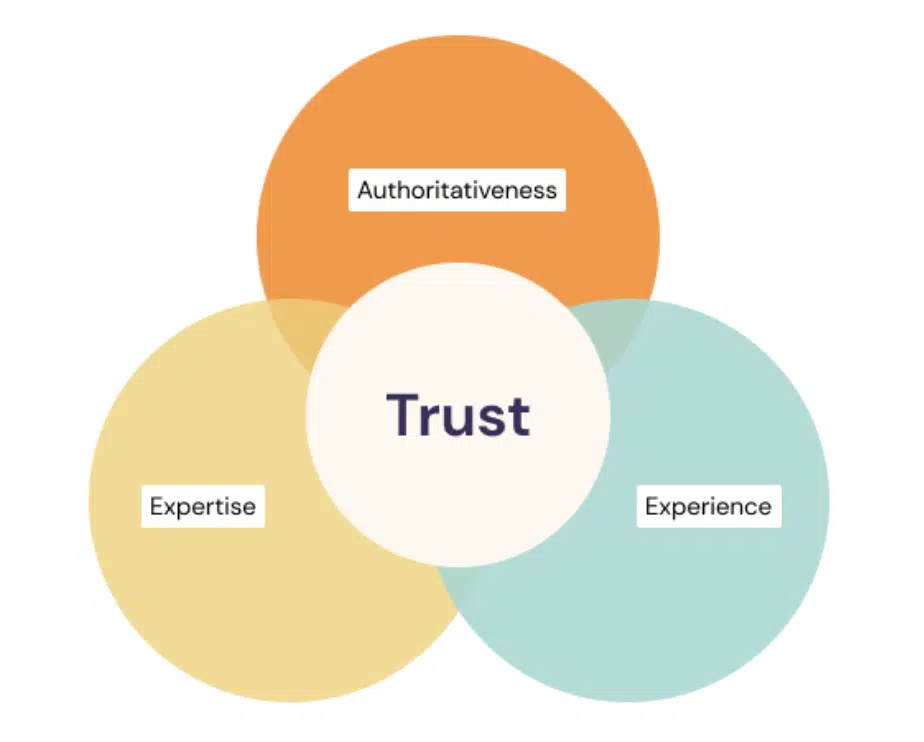When it comes to choosing a content marketing agency, you have lots of options. That said, if you are a lawyer or a digital marketing agency with legal clients, you should be working with a specialized legal content marketing agency, preferably with attorney leadership. Here are a few of the reasons why.
An Understanding of the Legal Industry
As someone who has studied the law, it’s easy to forget that things that seem obvious to you may not be evident to others. Things as simple as the difference between a civil or criminal case or who the parties are to a lawsuit are essential when creating content. Working with a trained legal writer ensures a basic understanding of the way the law works and provides the added benefit of efficiency. A writer with a background in the law is not going to have to look up what negligence means every time they craft a blog for an injury firm.
The Ability to Create Content that Aligns with E-E-A-T
It’s certainly true that a generalist copywriter can craft fluffy content that does not mention the law or violate any lawyer advertising rules. For example, they can write blog posts about “Car Accident Injuries” or “Types of Collisions” in 100 different ways. That said, this kind of content does not rank well in search engines. Google has been clear about the fact that it rewards content that demonstrates experience, expertise, authority, and trust (E-E-A-T) – especially for content that could affect a person’s well-being (such as law firm content). Crafting content that aligns with the principles of E-E-A-T requires deep subject-matter expertise, so if you are outsourcing your content creation, it’s in your best interest to work with specialist legal writers with a background in law.

The Ability to Conduct Legal Research
It has never been so easy to get information, and the entire catalog of human knowledge is literally at our fingertips. While once, you had to go to a law library to do legal research, for most things, Google works just fine. In addition, searchable databases like Lexis Nexis and Westlaw allow anyone with a subscription to engage in high-level legal research.
While this access to information has clear benefits, it also can lead to a false sense of competence. Access to information does not mean understanding that information, and it certainly does not mean that the person accessing the information has sufficient subject matter expertise to determine if it is reliable.
As stated by Arthur C. Brooks in The Atlantic last summer:
Google isn’t graduate school . . . If you think you understand something technical and complicated after cursory exposure, you might be able to put the knowledge to good use in your life, but you almost certainly don’t understand it well enough to hold forth on the topic.
In other words, reading an article about the 4th Amendment doesn’t make you qualified to discuss search and seizure law.
Legal Accuracy
Relatedly, a writer with a legal background can use precise language that ensures that the content on your website is legally accurate. For example, a generalist writer may confuse the terms comparative negligence and contributory negligence or strict liability and vicarious liability, leading to inaccurate information on your website.
With Google’s emphasis on trust when it comes to content quality, having misinformation on your site could lead to significant penalties. In addition, inaccurate information could lead to an ethics violation with your state bar or even a malpractice lawsuit if a client relied on the information and had an adverse outcome.
Compliance with the Advertising Rules in Your State
The content on your law firm’s website has to comply with your state bar’s advertising rules. As the old saying goes, “You do not know what you do not know.” A generalist writer may not even think not to use the word “specialize” or “expert” when discussing your focus on your practice area. In addition, there is a big difference between saying, “We will get you compensation,” and “We will get you the compensation you deserve under the law” – of course, the first one promises an outcome while the other leaves the door open for the fact that the reader does not, in fact, deserve any compensation under the law. It is doubtful that a writer without legal training will know about these rules or how to apply them, potentially resulting in content on your website that violates the advertising rules in your jurisdiction.
Call Lexicon Legal Content Today to Connect with an Expert Legal Writer
At Lexicon Legal Content, our team of experienced legal writers – including licensed attorneys and JDs – specializes in creating content for law firms that is clear, accurate, and demonstrates your experience, expertise, authority, and trust (E-E-A-T). As an JD-owned company, we understand the importance of accurate and compliant content for law firms.